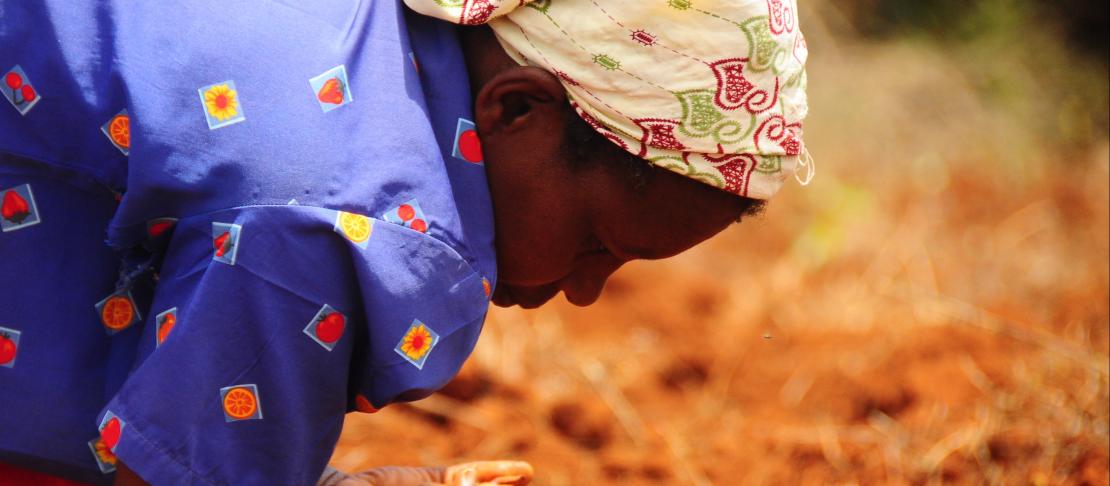Slow progress for agriculture in Bonn climate talks, but high hopes for Rio +20

by Cecilia Schubert
The United Nations climate meetings in Bonn have now come to an end. On agriculture, there was much fruitful discussion and trust-building among parties. A contact group on agriculture met several times to share views informally. However, no formal decision on what the Subsidiary Body for Scientific and Technological Advice (SBSTA) should recommend to the Conference of Parties (COP) on agriculture was made. Delegates chose to continue to exchange views on issues relating to agriculture (PDF) during COP18 in Qatar later this year.
Agriculture discussions during the first week of SBSTA negotiations, held 14 – 25 May, covered the submissions received by the UNFCCC on this topic, including proposals from an African group of Negotiators supported by the CGIAR Research Program on Climate Change, Agriculture and Food Security (CCAFS).
Representatives of the G77 and China pointed out early on that the discussions on this topic needed to reflect agriculture’s fundamental role in social, economic, and rural development, especially for developing countries, where a large proportion of the population depends on agriculture for their livelihoods. They suggested for SBSTA to undertake a number of tasks in relation to agriculture, including:
- Provide assessments of the state of scientific knowledge relating to adaptation to climate change and its effects on agriculture;
- Identify innovative and efficient technologies and know-how for adaptation in agriculture;
- Advise on ways and means to transfer technologies for adaptation
- Provide advice on scientific programmes and international cooperation in research related to adaptation to the effects of climate change in agriculture.
The complex nature of agriculture invites possibilities to link adaptation and mitigation activities. In Bonn, developing countries continued to emphasize adaptation as the primary focus for the work on agriculture within SBSTA, with a focus on ensuring food security. The European Union, Republic of Korea and New Zealand, among others, suggested that both adaptation and mitigation should be reflected in the proposed text.
The first draft of the text, presented by the chair to participants at the end of week one, did not extensively reference adaptation. G77 representatives together with China and the Philippines were concerned that adaptation played a very marginal role in the text, despite the initial outline by several countries that adaptation must be viewed as a priority in how the SBSTA considers agriculture. Bolivia, on behalf of the G77 and China, noted that the lack of adaptation references made it difficult for them to agree on further activities. Due to the diverging opinions, no agreement could be reached by the end of the conference. Discussions on this topic will continue at the upcoming climate meeting in Qatar this November.
In Bonn, CCAFS and the Southern African Confederation of Agricultural Unions (SACAU) convened a side event that discussed current knowledge on how agriculture can contribute to both adaptation and mitigation, in the context of the ambition to create an agricultural work program within SBSTA. The overall message of the side event was that there is considerable progress that SBSTA can make feasibly in the near-term to support adaptation with co-benefits for mitigation. There is no time to waste. Adaptation should to be initiated for the agricultural sector, especially in developing countries, in order to ensure future food security and resilience.
“The Subsidiary Body for Scientific and Technological Advice should establish a framework for the work programme on agriculture with a clear goal of supporting adaptation actions with mitigation co-benefits,” said Moderator James Kinyangi during the session.
With agriculture playing a fundamental role in many countries’ development, improving agricultural production systems could ensure not only food security, but help create national economic development and enhance farmers’ livelihoods. Agricultural practices that improve livelihoods while at the same time building resilience, adapting to climate change and, where appropriate, mitigating GHG emissions, are called “climate-smart agriculture”. Click to read more on the concept of climate smart agriculture.
At next month’s United Nations Conference on Sustainable Development in Rio de Janeiro, Brazil (also known as Rio+20) CCAFS will co-host Agriculture and Rural Development Day on 18 June. The event brings together a wide range of organisations working in agriculture, development and climate change, to showcase good practices and research innovations for climate-smart agriculture. The event aims to share knowledge among practitioners and policy-makers – and to place sustainable agriculture in the centre of the global framework for sustainable development that emerges from Rio.
This blog post was written by Cecilia Schubert, Communications Assistant, edited by Sonja Vermeulen, Head of Research. Read more stories from the Subsidiary Body for Scientific and Technological Advice (SBSTA) meetings. To get updates on Rio +20 follow us on Twitter (@agricultureday) and on Facebook. If you are attending the conference, register now for the Agriculture and Rural Development Day (ARDD) at www.agricultureday.com.